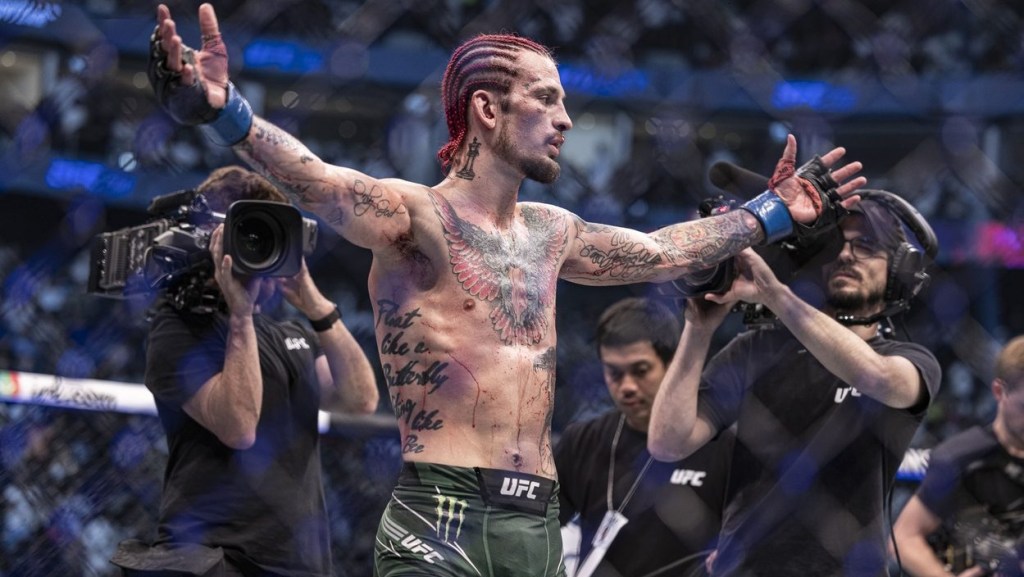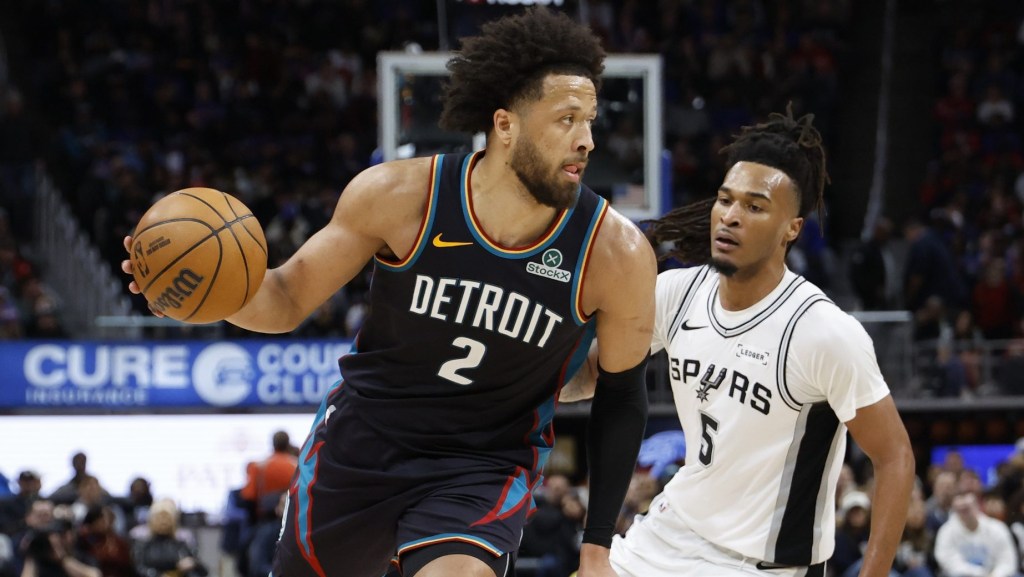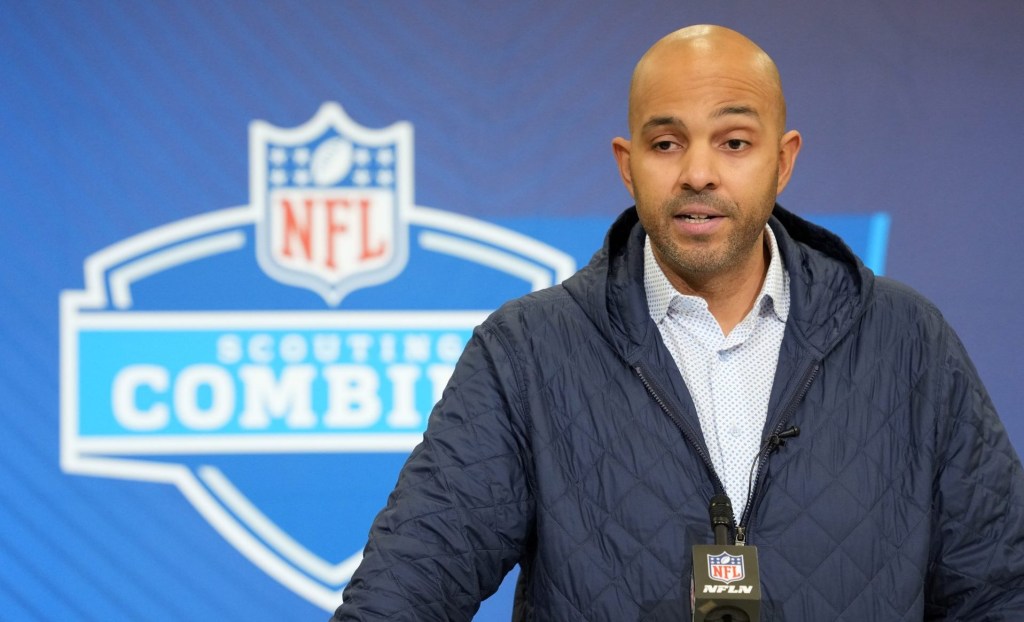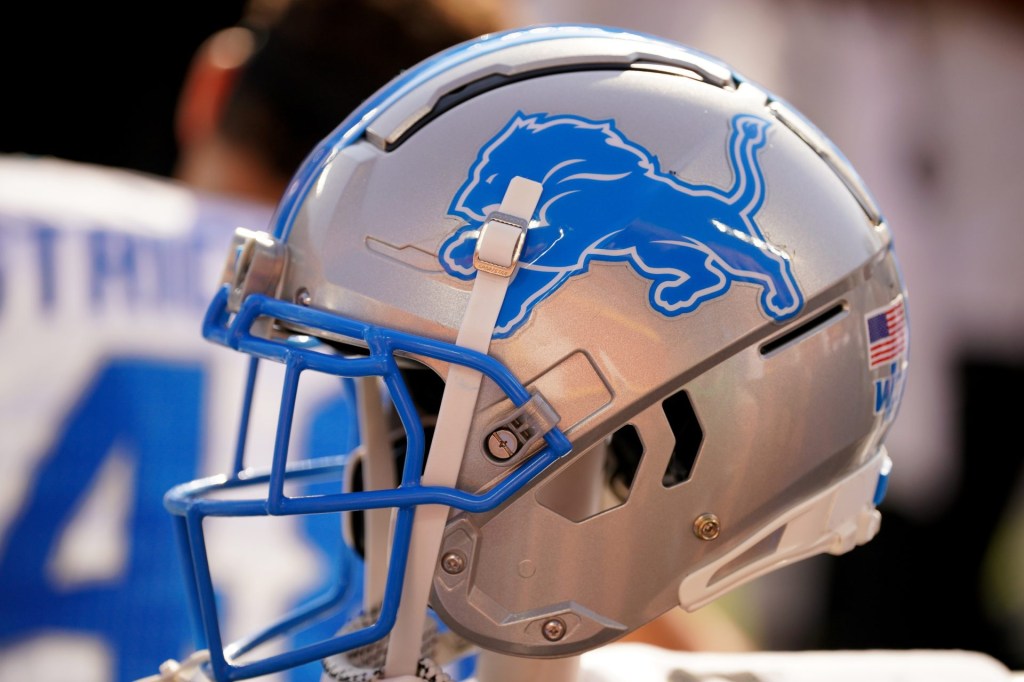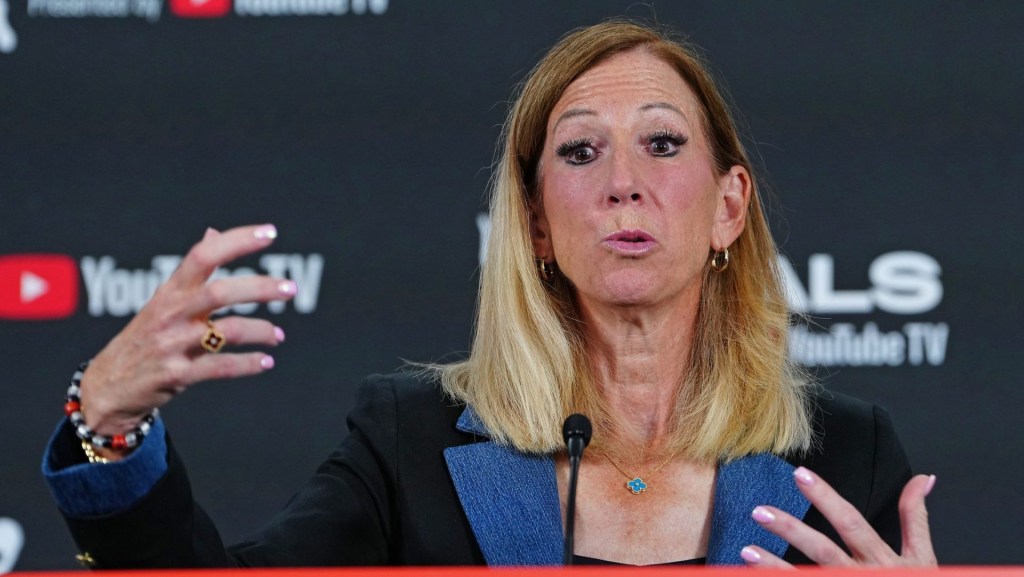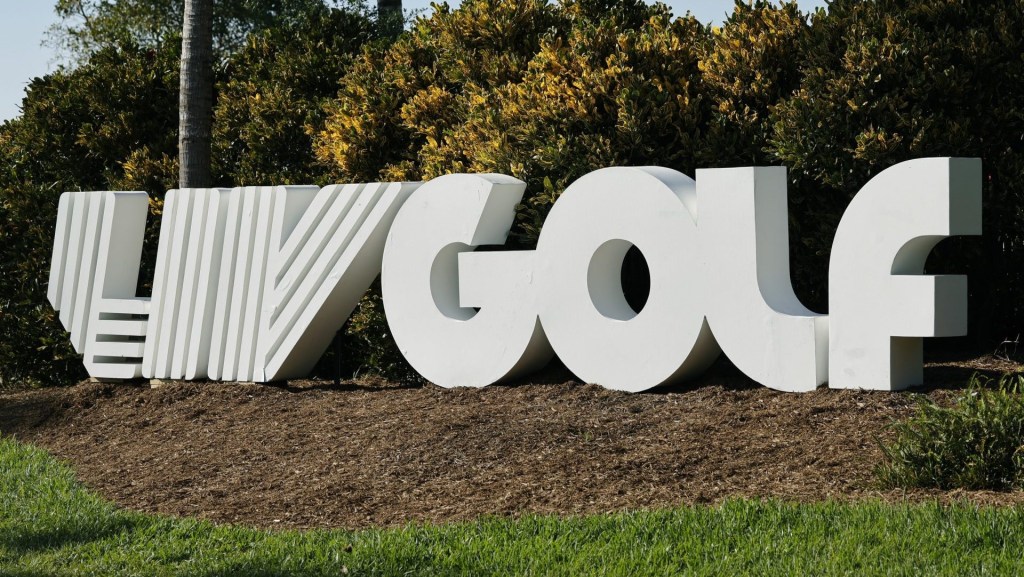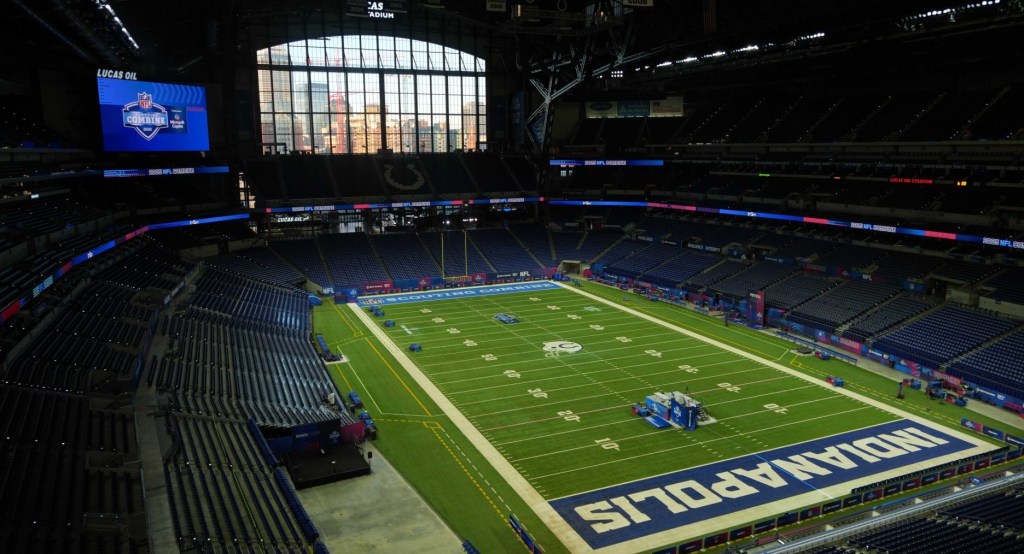Last year, Duael Track announced its grand plans to make track popular again. There would be head-to-head brackets, a half-million dollars in prize money, Terry Crews hosting, and a race between Noah Lyles and Tyreek Hill.
The first event was supposed to be in March 2025. That was four months ago. Now cofounder Barry Kahn tells Front Office Sports there will be no stand-alone Duael event in 2025; the company is hoping to partner with an existing track event for a race in 2026.
“There’s a huge opportunity for a viable, entertainment-focused property in track and field,” Kahn tells FOS. “But I don’t think there’s an opportunity for five or six of them.”
Kahn is alluding to the fact that after the Paris Olympics, a flood of track—and mostly track, not track and field—start-ups were founded to capitalize on the quadrennial rush of interest in the sport. Start-ups like Kahn’s Duael, Michael Johnson’s Grand Slam Track, and Alexis Ohanian’s Athlos promised deep pockets and prize money that offered the very best athletes a chance to cash real checks and the middle class a chance to earn a living.
For a sport that is perpetually starved of money, tens of millions of dollars in investment was a welcome development. Athletes have griped for years about poor and erratic pay; even Olympians have had to work side jobs to make ends meet. Grand Slam launched with $30 million in funding from hedge fund billionaire Bill Ackman’s Winners Alliance and a promise to fundamentally change the sport; Ohanian spent millions on his inaugural meet in New York City.
One year later, the track record of these start-ups is mixed at best.
There is unquestionably more money in the sport than there was before, as several existing circuits increased their prize pools to stay competitive. But the new track calendar looks a lot like the old one: fragmented and struggling for the sustained attention that would set it up for consistent success in between Olympic years.
Unlike Duael, Grand Slam Track made it to its first event. It did not make it to its fourth.
After a poorly attended debut in Kingston, Jamaica, Grand Slam tweaked several parts of its product for more energetic outings in Philadelphia and Miami. In a frank interview with FOS in May, Johnson called Kingston a disappointment but said he was otherwise pleased with GST’s first year. He said TV ratings on The CW exceeded expectations, and indeed, the 250,000 average for the second Slam was respectable for a new non-football sports property. (That’s more than what the much-hyped winter basketball league Unrivaled averaged on TNT.)
Behind the scenes, though, Johnson’s brainchild was scrambling. Between the Miami and Philadelphia Slams, Johnson axed the third day of the meet and eliminated the 5,000 meters, halving the prize money for the long-distance group.
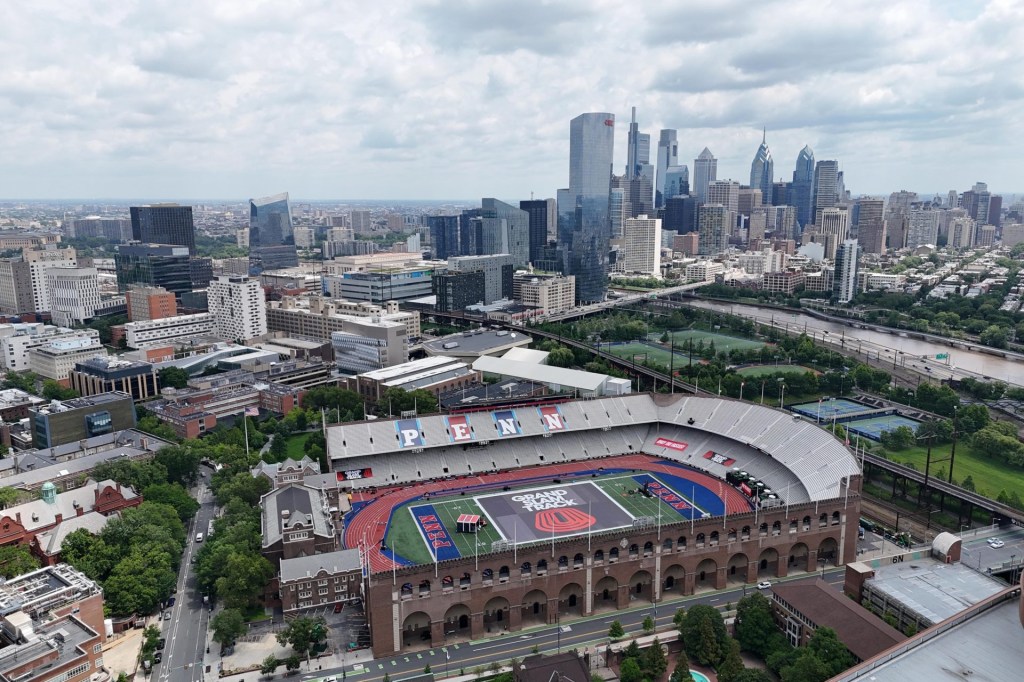
Eleven days after the Philadelphia meet, FOS reported that the fourth and final meet in Los Angeles would not happen as planned.
After the cancellation, Johnson insisted Grand Slam would return in 2026, and the company told reporters that it had new investors, including Robert Smith, the founder of Vista Equity Partners.
But sources tell FOS that Smith was already funding Grand Slam by May to make sure that the Philadelphia event actually happened.
Grand Slam has repeatedly denied that it canceled the L.A. meet due to money problems, but there are several signs that the once well-capitalized start-up is cutting costs. It laid off six employees—out of several dozen—last month, sources told FOS, and cut pay across the board by 15%. The cuts included chief content officer Rick Qualliotine and director of digital product Lara Melniker and mostly hit the content and sales departments.
The most important thing Grand Slam offered was a truly revolutionary amount of money: $12.6 million in prize money across the four Slams, plus more in dedicated salaries for its 48 “racers” who appeared in every meet and small appearance fees for its “challengers” who showed up as one-offs. The $100,000 for winning one event group was far more than existing track meets paid; the international Diamond League circuit announced last fall that it was increasing its prize money to $20,000 for certain event winners and $50,000 at its annual finals.
Grand Slam mocked the Diamond League’s September announcement, posting its own lucrative purse structure with an “in a league of our own” dig. “What we’re doing right now is exponentially larger than what athletes have been used to being paid in this sport,” Johnson told FOS in May. “For us to be at $100,000 for first place, versus $10,000 was the previous ceiling, is significant on its own.”
There’s just one issue: Very few of those checks have actually been written.
Though cutting the L.A. meet and Philly 5K saved Grand Slam more than $3 million, athletes have mostly not been paid for the Kingston, Miami, and Philadelphia meets. All told, a source tells FOS, the track start-up still owes athletes $13 million. In an email to athletes, it said it planned to complete the payments—including L.A. appearance fees—by September.
Last week, Grand Slam’s still-active TikTok posted a video of the charismatic sprinter Gabby Thomas, who won three Olympic gold medals in Paris and was one of the faces of Grand Slam. “So dope!!” Thomas wrote in the comment section. “Pls pay me.”
A clear sign of track’s fragmentation is that Thomas is not only a face of Grand Slam but also an “advisor-owner” for Alexis Ohanian’s Athlos, which debuted in New York last October.
Athlos and Grand Slam are unquestionably competitors for prestige, attention, and most of all, athletes, underscoring the coordination problem that Kahn says hurt Duael. It’s a problem that plagues many fledgling sports. When volleyball surged in popularity in recent years, four different U.S. pro leagues rose up in an attempt to meet the demand. There are multiple U.S. professional leagues in soccer, softball, and even women’s basketball, where the WNBA dominates the summer but several new offerings compete for fans in the winter.

One dispute between Grand Slam and Athlos led to the leak of parts of an athlete contract last year, rare in the notoriously opaque world of running. Ohanian went after Johnson and Ackman—the chairman of Winners Alliance, which provided Johnson with most of his funding—on social media in October. “It’s disappointing you’re requiring these women to get permission from you & Bill in order to compete in other leagues,” he wrote. “I personally see prohibiting athletes from competing in another league as a sign of weakness.” Grand Slam disputed Ohanian’s claims and, at the time, told FOS, “It’s unfortunate that in this pivotal moment to elevate the sport, there are some newcomers who think the way to do this is to create controversy through distortions.”
A copy of the contract obtained by FOS last year showed Johnson’s league required athletes to get written consent before competing in a track league that had more than two events, the Diamond League excepted. That wouldn’t include Athlos in 2024 or 2025, when Ohanian is hosting just one meet annually, but he recently announced vague plans to expand to a league in 2026.
Reached by phone earlier this month, Ohanian did not spike the football after the L.A. cancellation, saying “no one is celebrating this. … No one wants to see less investment in the sport.” He said Athlos paid athletes “in a few business days” last year, and that it shocked him to learn about other meets taking months or longer to pay athletes, or managers failing to pay athletes after organizers paid them.
“Nothing could prepare me for the broke-ness that exists in the infrastructure around this sport, and the sort of low-integrity behavior. … It’s sad,” he tells FOS.
While other start-ups have slammed headfirst into the same financial problems that have plagued the sport for years—a lack of viewer interest outside of the Olympics and U.S. Olympic Trials, and a lack of investment from blue-chip sponsors—Ohanian says he is in it for the long haul and believes he has tapped into several revenue streams that will ultimately turn Athlos profitable.
He said his experiences investing in soccer and other sports led him to believe that “we don’t want to grow too fast,” only adding field events in the second year and the planned team component in the third. (Unlike the other start-ups, Athlos has only women competing.)
Ohanian did not answer questions last year or this summer about how much he was spending or losing on Athlos. In 2024, between prize money, travel, meet production, and other costs, the meet surely ran well into the single-digit millions by any estimate.
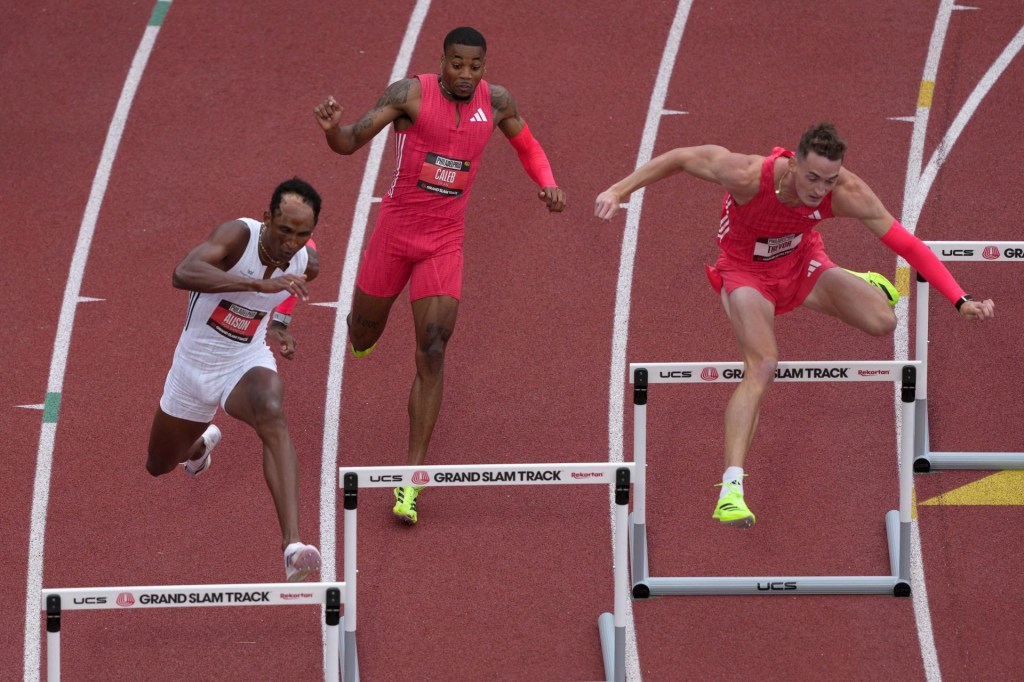
But he insists he is in it to make money, not provide charity for women’s sports, and that he had a plan to do so. “You don’t build a multibillion-dollar business like Reddit without understanding some fundamentals of entrepreneurship,” he tells FOS. He adds that no one worried about profitability two years into Reddit, “and those investors are pretty happy right now.” (Condé Nast bought Reddit from Ohanian and the other founders in 2006 for $10 million and made $2 billion taking the company public last year.)
One issue for start-up events—in all sports—is deciding which revenue stream is most important to prioritize, whether that’s tickets, media rights, sponsorships, or a balanced combination. Unrivaled, the 3-on-3 women’s basketball league, played in a glorified TV studio in Miami and went all in on media revenue, punting on tickets almost entirely. Kahn, the Duael founder, tells FOS that he had worked on a similar concept, with sprinters facing off in a warehouse. Former USA Track & Field president and current University of Virginia coach Vin Lananna, who attempted a domestic circuit with the TrackTown summer series a few years ago, tells FOS that media rights were the single most important part of the revenue pie.
Ohanian made his event free to watch on several platforms, giving him a large number of viewers that he could then turn around and present to sponsors and media companies. He chose to hold his meet at the 5,000-seat Icahn Stadium for the first two years, making it easier to show a crowded event but setting a low cap on how much money he could make from tickets and concessions. Major sponsorships were critical for Athlos’s business, which had more success attracting them than its competitors did. “Those brand partnerships are meaningful,” he says, pointing to companies like Toyota and Tiffany that sponsored the first meet.
He also thinks he’s opened a new revenue stream that is basically unheard of in track: merch tied to specific athletes and teams, which he believes the 2026 team plan could unlock. “Right now if you’re a fan of Gabby [Thomas], Tara [Davis-Woodhall], or Sha’Carri [Richardson], you can’t buy their merch. You can’t buy a shirt with their names on the back, which is crazy.”
Kahn says attracting sponsors outside of the shoe industry was a challenge for Duael. Grand Slam said it would not accept any sponsorships from shoe companies, a move that won plaudits for keeping the league’s independence—athletes, coaches, and agents have long complained about shoe brands, particularly Nike, exerting excessive influence—but may have cost it money. After the cancellation of the L.A. meet, Grand Slam announced a deal with the company Sundial Media to help “secure strategic commercial partnerships,” something Grand Slam appears to have struggled to do in its first year.
Part of the reason that independent operators like Ohanian, Johnson, and Kahn can stand up their own meets as they please is that in the U.S., there is no commissioner of track and field. There is the national federation, USATF, but as its CEO Max Siegel stresses, professional track is just a small sliver of what the federation handles, as its responsibilities range from youth to masters events.
“The industry is incredibly fragmented,” he tells FOS. “What’s happening with Grand Slam is indicative of how difficult it is to have a sustainable property … difficult to build up visibility, value in a property, all those things that make consumers want to engage in it.”

In 2022, Siegel and USATF embarked on a six-year plan to juice track’s popularity ahead of the Los Angeles Olympics in 2028. Part of that was a planned “Grand Prix” series to offer major track meets outside of Oregon, which has had a monopoly on top domestic competition for years. Last year, there were three USATF Grand Prix meets, and all aired on NBC. This year, issues with the local operators caused the Grand Prix meets in New York and Bermuda to be canceled, and USATF agreed to drop the Los Angeles Grand Prix because it was too close to Grand Slam on the calendar in June. The double cancellations meant no major track meets will happen in L.A. this year, three years ahead of its Olympics.
Siegel tells FOS there will be a big meet in Los Angeles next year, whether Grand Slam manages to return or the USATF meet is back on.
USATF has had its own money issues, running a total deficit of $12 million in 2022 and 2023, the last years for which tax information is available. Siegel says the deficits were a product of $10 million in spending on the 2022 world championships and heavy investment in elite athletes ahead of the Paris Olympics—where Americans won a whopping 34 medals in track and field, the country’s best showing in decades—and that he had curbed deficits with increased corporate sponsorships. He pushed back against a Wall Street Journal report from April that characterized an independent review as being focused on the federation’s spending. (The review is ongoing.)
Siegel has come under fire for his own pay in recent years, which ballooned to $3.8 million in 2021 before dipping to $1.3 million in 2023; he signed a five-year extension with the federation last year. His pay, significantly higher than comparable Olympic leaders, has been a frequent target of criticism considering USATF’s money issues. Its 23-year, $500 million deal with Nike has also been a target, both from critics who say the deal is too long and from federal investigators who impaneled a grand jury in 2021 to look into how the Nike deal was negotiated.
Siegel tells FOS he has gotten the deficits under control with new corporate deals. That’s also had the benefit of making USATF less reliant on Nike money, which he said represents less than half the budget for this year. He says that he had increased annual revenue from $15 million when he arrived to $42 million in 2024. (USATF’s 990 tax form with detailed information is not yet available from 2024.) He adds the 2024 deficit was down to the $2 million to $3 million range, roughly half the 2022–23 deficits, and the federation would run a surplus in 2025.
Regardless, the federation faces the same issue that the independent operators do, and the same problem as all U.S. sports trying to become the country’s fifth- or sixth-most popular sport: How do you convert energy and interest into money?
Kahn, the Duael founder, points out what many have in track for years: America has tens of millions of runners—a number that has grown rapidly in the past few years—but relatively few track fans.
“One of my concerns seeing the Grand Slam outcome is, I can understand how someone can look at this and draw the conclusion that track and field can’t support a professional league,” Kahn says. “I truly don’t believe that’s the case. … I think the question is, how do you take something that has historically really been an amateur or participatory sport and turn it into an entertainment property?”
—Daniel Kaplan and Margaret Fleming contributed reporting.
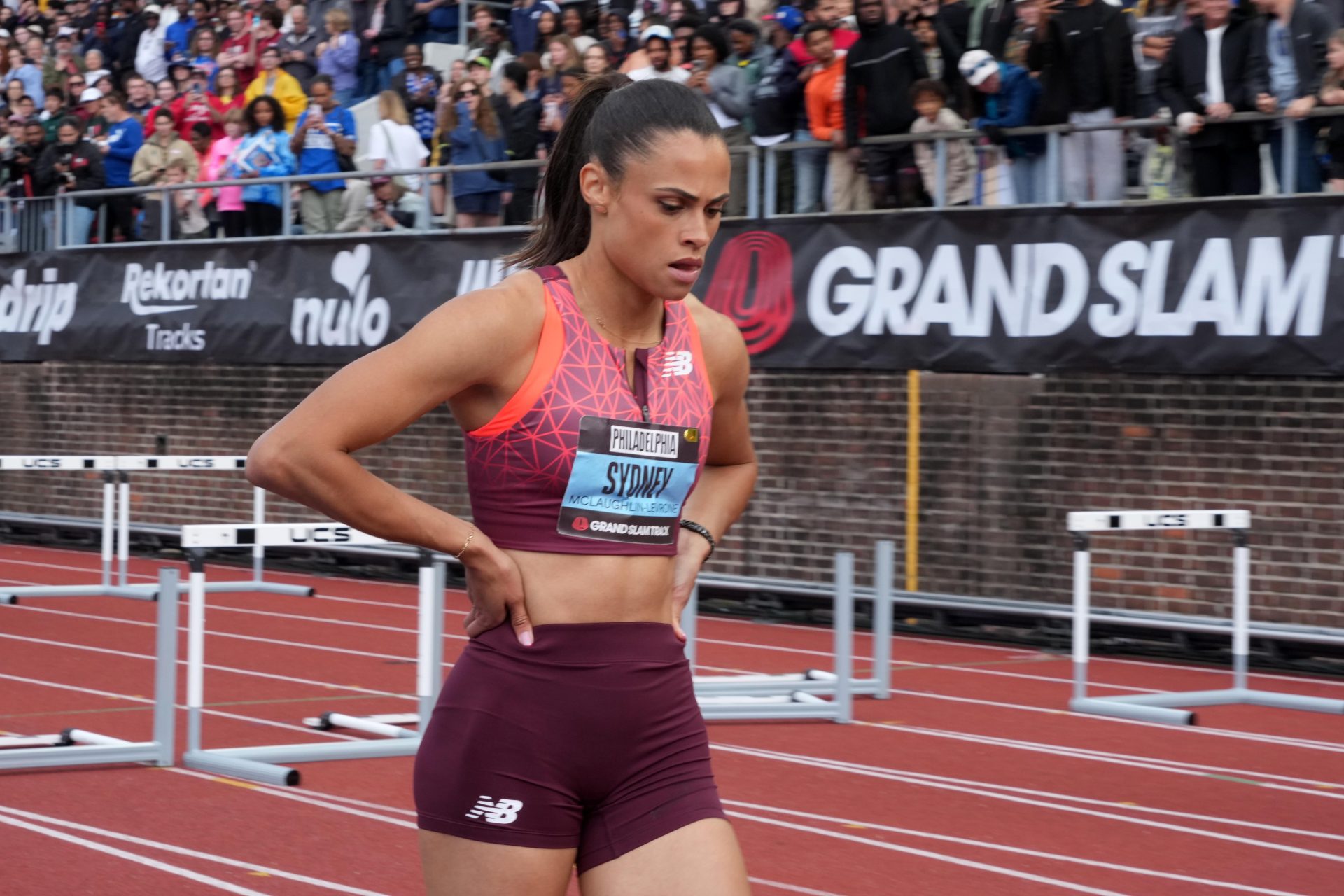
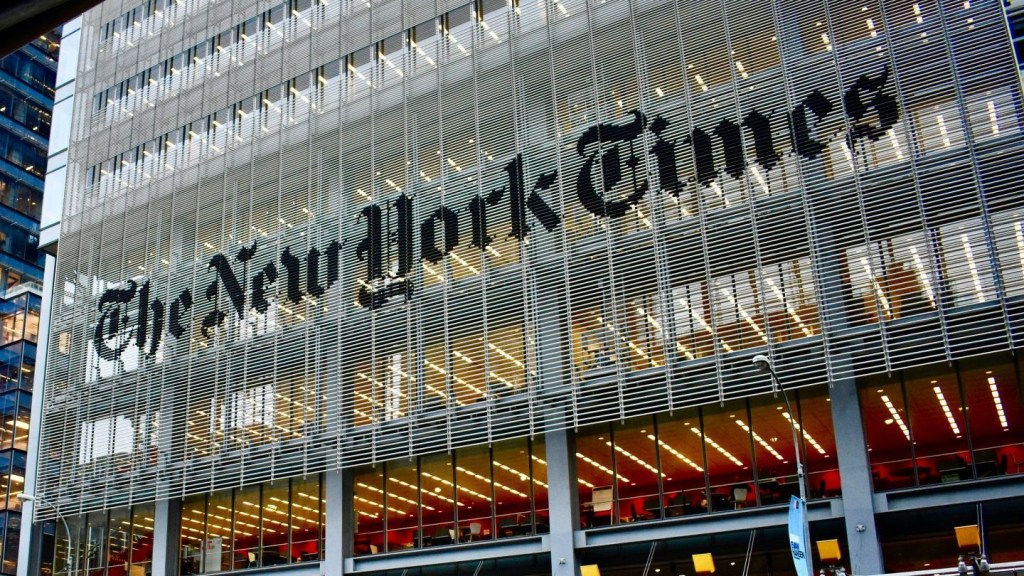
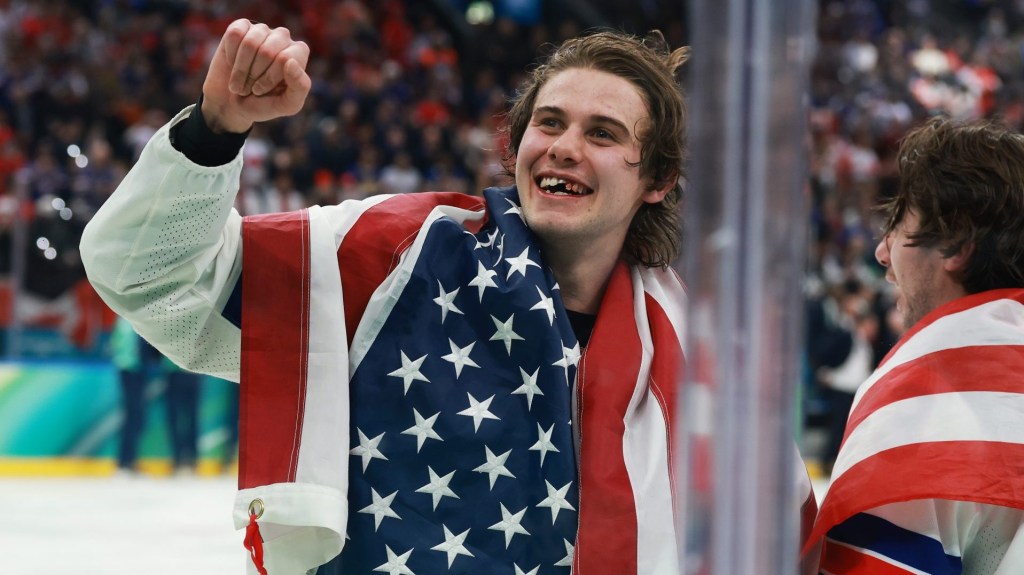
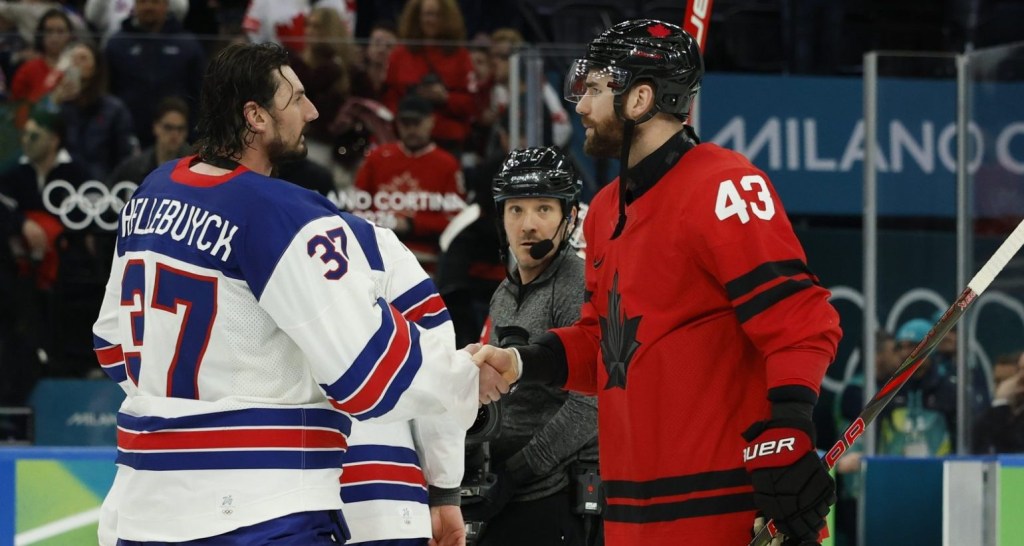
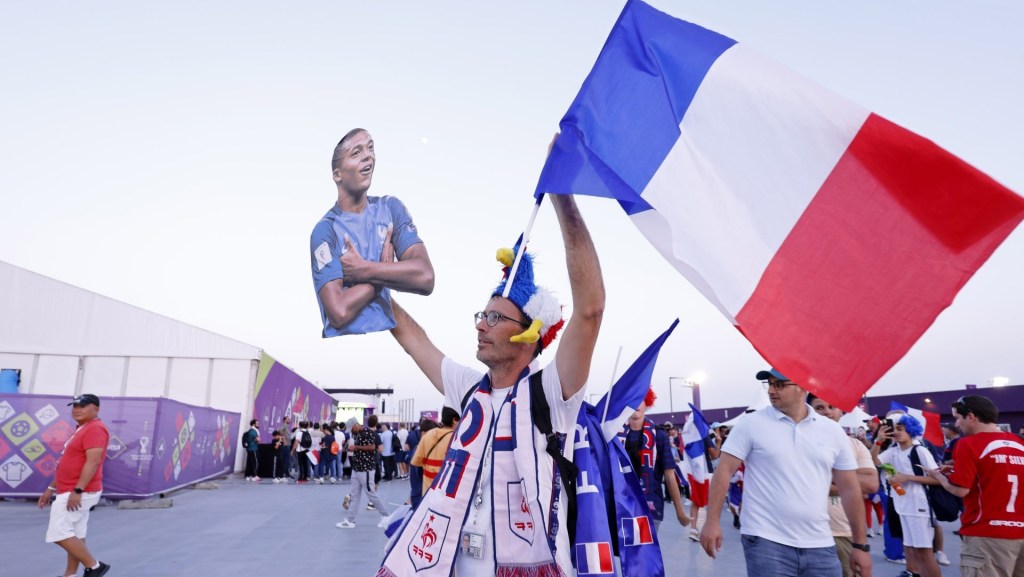
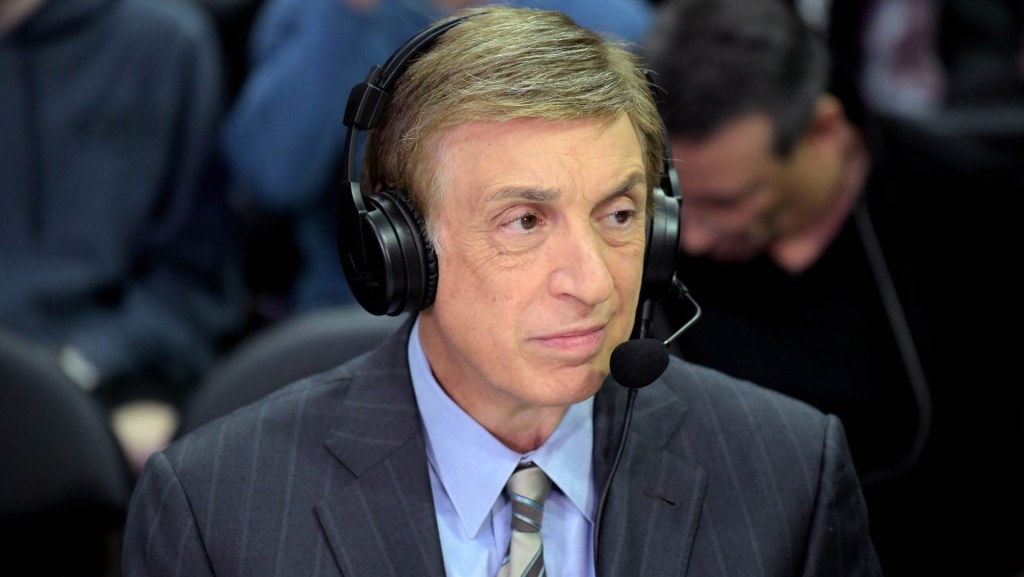
![[Subscription Customers Only] Jul 13, 2025; East Rutherford, New Jersey, USA; Chelsea FC midfielder Cole Palmer (10) celebrates winning the final of the 2025 FIFA Club World Cup at MetLife Stadium](https://frontofficesports.com/wp-content/uploads/2026/02/USATSI_26636703-scaled-e1770932227605.jpg?quality=100&w=1024)



